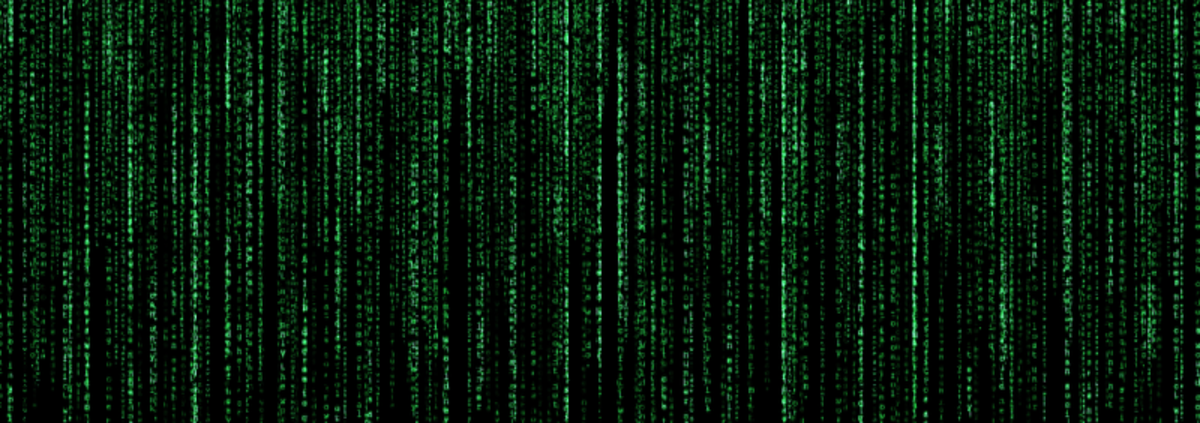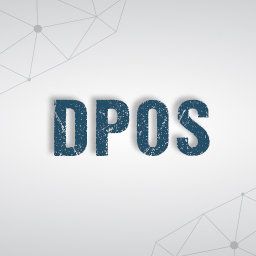
The premier decentralized digital currency Bitcoin has gained widespread mainstream attention over the last year. While many are embracing this new peer-to-peer payment system, others have voiced strong suspicion and offer stinging criticism. The divergence of opinion surrounding Bitcoin is a predictable pattern that happens with any major innovation.
Silicon Valley tech entrepreneur and author Andreas Antonopoulos said, “Bitcoin and crypto-currencies in general don’t fit any of the traditional modes: not currency, stock or commodity, but [are] a new asset class”. He continued, “trying to figure out Bitcoin by fitting it into an existing paradigm misses the point. Cryptocurrencies broke the paradigm. It’s a new world.”
The phenomenon of blockchain currencies shakes up our preconceived notions of money, but more significantly, this paradigm shifting technology challenges us to examine our whole taken for granted world. Like in the popular film The Matrix, it engages us with the question; “What is real?” This is a kind of existential crisis. Some respond to it with an open mind, while others struggle and resist the transformative force coming through it. Recently, this tension came to the surface with a new contender within the cadre of Bitcoin critics.
Pretend Currency?
International bestselling author and expert on money laundering Jeffrey Robinson wrote a new book that stirred a bit of controversy on the Internet. In BitCon: The Naked Truth About Bitcoin,Robinson attempts to, as he puts it, “pull back the curtain” on this crypto-currency.
In an ABC interview, he said that the more he got into Bitcoin, the more fascinated he became with the story behind it, which he characterized as “all hype and spin.” He concluded that Bitcoin is a “pretend currency” and that there is nothing happening with it. Although he praises the underlying technology of the blockchain, he completely dismissed the currency element, relegating it to a Ponzi scheme by calling it a “pump and dump”.
Within 24 hours of his interview, a chorus of rebuttals struck chords on social media. On Reddit, a thread of more than 100 largely critical and derisive comments quickly grew. A post under the name Paleh0rse questioned Robinson’s contradictory view on the technology, specifically pointing to his suggestion of using the blockchain without the currency as its first application: “The two cannot be separated if the utility of the one (the blockchain) ultimately determines the value of the second (bitcoins), and the second is required to make use of the first.”
In the age of the Internet, blatant disinformation doesn’t so easily get by unnoticed and can’t fly for very long. An article entitled Jeffrey Robinson Doesn’t Understand Bitcoin emerged to address his lack of understanding of the technology. In it, Stephan Livera carefully disputes and corrects each misconception. The host of RT’s financial report, Max Keiser, tweeted his assessment of Robinson’s book: “Uninformed, slam piece on Bitcoin written for clueless Daily Express readers is waste of time with zero insights.”
A Twitter swarm emerged as Robinson @WritingFactory promoted his contention that this digital currency is nothing but thin air of pretense. In an effort to emphasize his point, Robinson claimed that his book could not be purchased with it. Cyril Houri, CEO of Brawker, took up the challenge and used the company’s platform to successfully buy Robinson’s book with bitcoin. The commentary regarding this futuristic currency spilled into the Amazon review section for the book, where it gathered a wide range of opinions.
Let’s look at his book’s essential message. Robinson wants the world to see Bitcoin as a pretend currency. It seems as though this ‘pretend money’ somehow managed to allow an organization like WikiLeaks to survive through a very critical time, when all other financial service avenues were withdrawn from them. This ‘pretend money’ is also somehow enabling Somali migrant workers to transmit money back home without having usurious portions of their hard-earned wages extracted by remittance monopolies like Western Union. People are buying laptops, household goods and plane tickets by using this ‘pretend money’.
If this digital currency is not real, as the author of BitCon claims, why does Overstock.com choose to accept bitcoins as a form of payment and iseven giving its employees the option to receive bonuses with it? Have these transactions really happened or are we just collectively having a lucid dream?
Robinson argues there aren’t many real bitcoin transactions. He claims that companies like Expedia and Dell that incorporate bitcoin into their payment systems and save the rent-seeking 3 that VISA charges never really accept bitcoin, as they convert it immediately into fiat through exchanges such as Coinbase and BitPay.
Whether those companies decide to keep their bitcoin or not is one issue. But isn’t this decision to enable their customers to purchase their products with bitcoin a sign that they see it as a form of currency (a value transfer vehicle)? Would Robinson not see customers who use Visa and Paypal in US dollars as dollar transactions?
Most of all, what is it about Bitcoin that makes someone like Robinson dismiss it so forcefully, while others take it seriously and are integrating it into their daily lives? There seems to be something more going on than his apparent profound lack of understanding of this technology.
Red Pill and the Rabbit Hole
In the Matrix, Morpheus said to Neo, “there’s something wrong with the world. You don’t know what it is, but it’s there, like a splinter in your mind, driving you mad.” This leads to a famous scene where he offers Neo a choice between the blue pill and the red pill. Morpheus asked Neo if he ever had a dream that he was sure was real and asked if he happened to be unable to wake up from that dream: “How would you know the difference between the dream world and the real world?”
Bitcoin is like the red pill. For those who choose to use it, they get to find out how deep the decentralizing rabbit hole goes. The deeper one moves into the Bitcoin ecosystem, the more the rules of the old world fall away and the hands of regulatory agencies lose their grip. Bitcoin can generally only be confiscated if someone accesses your keys, like a typical outer world robbery.
Bitcoin unveils the matrix that we grew up in and the identity that is embedded in the system. For instance, Robinson’s engagement with Bitcoin exposes his deep-seated bias, which was revealed in the way he paints a picture of Bitcoin communities with such a condescending attitude and haughty ridicule.
This self-proclaimed Bitcoin expert calls those who advocate this digital currency the “Bitcoin faithful,” characterizing the whole decentralized network as something like a religious cult. One can see his analysis is rather narrow minded, as cryptocurrency enthusiasts come from all different backgrounds and world-views. If Robinson wants readers to take his claims seriously, he would need to become more balanced.
His attitude and characterizations may as well be saying that bitcoiners are misinformed gullible disciples of some sort of avatar named Satoshi Nakamoto. If one looks more broadly at this issue from his perspective, it would also be fair to describe those who defend fiat and the system of central banks as fervent believers, blindly worshiping the almighty imaginary god of central banks and the holy ghost of fiat currencies.
Robinson’s bias reveals a deep investment in the world of fiat and the Matrix of 1 dominance. He represents a world that was established during the Cold War, where U.S. hegemony morphed into the first truly global corporate empire. This system is now run by transnational oligarchs like Goldman Sachs, and the ones who pressured President Richard Nixon to take the dollar off the gold standard, syndicating an international patronage banking cartel that has recently been orchestrating a massive debt-based Ponzi scheme at a global scale in a spiral of debt and derivatives.
Currently, this pretend fiat money created through infinite money printing is treated as real. It achieved massive adoption as the world reserve currency through the creation of the petrodollar, which Nobel prize-winning economist Paul Krugman described as being “backed by men with guns.”
Surely, the world created through this pretend fiat is an artificial reality in which those who control its flow are in charge of what happens within the system. They have their own world afloat in a bubble and are insulated from what is really happening. Derivatives along with bond and stock markets are prime examples of this manipulation. We saw in 2008 after huge bank failures from speculation in these deregulated markets that the banks were bailed out by the taxpayers and never had to face the consequences of their actions.
Then came Occupy in 2011. People of all walks of life came to Wall Street to confront this rigged monopoly game controlled through private debt-based currency that is created out of thin air. Before the Occupy movement caught fire, scholar-activist David Graeber noted how the 2008 financial crisis and bailouts of Wall Street banks revealed a brazen double standard in the unspoken rule that debts were sacrosanct and no one should be allowed to default, while bankrupt bankers were being bailed out by the taxpayers who were then just loaded with more debt. People began to see money as a mere political arrangement or social promise that bankers and governments make with one another.
Robinson seems to be aware of this naked truth behind the existing financial system, yet conveniently pretends not to know. For instance, when he was asked about HSBC’s involvement with drug cartels and massive money laundering, he claimed he didn’t know why no one in the banks went to jail. Here is an expert on money laundering who, when asked about one of the most egregious cases of illegal drug money laundering, seemed to simply not understand why there was no prosecution. It is convenient how people who laud the current system never question the intimate ties between those who regulate the industry and the bankers that they are supposed to regulate.
What Is Real?
Many who take the red pill of decentralized currency are coming to realize the line between reality and fantasy is just thin air propped up by unexamined faith in a decaying tyrannical state. People around the world are starting to see that the corporate empire has no clothes. We are living in a pretend world, under a pretend democracy, with pretend experts that perform as gatekeepers of power. Under the pretense of national security, state terrorism is made into reality as mass surveillance and wars are justified by manufactured enemies at the expense of our liberty and privacy.
Bitcoin unplugs us from the Matrix and opens the door to a new future. As the Internet of money, it creates reality within a new interconnected world. This decentralized potential challenges each to let go of the urge to control, to extract wealth and exercise domination. In Neo’s speech at the end of the Matrix, he described “a world without rules and controls, without borders or boundaries.” He also called it “a world without you,” without illegitimate authority. Ultimately this is scary to those who cling to the illusion of control and the power it gives them.
Bitcoin is a new paradigm created through each person’s direct participation and peer-to-peer interaction and transaction. This is where everyone who chooses to abide by a protocol of algorithmic consensus is placed on an equal playing field and no one gets to cheat the system. We can then simply be judged by the content of our character and individual merits. Factors such as color of skin, nationality and gender used to advance one’s social position in an old paradigm can no longer so easily be used as a reason to exercise power over others.
Can the invention of the blockchain help bring society into a post nation-state world, free from the oligarchic rule of conquest and domination? Is this a living imagination or simply a hallucination? In a sense, this world is no less real than Robinson’s world and Bitcoin’s ‘pretend currency’ is no less real than the fiat money he worships. The emergence of Bitcoin unveils the origin of all money: how it always starts as just an idea, which when it reaches a critical magic point of mass adoption becomes ‘real money’.
No matter how this plays out, with the arrival of blockchain based crypto-currencies we now have a chance to take back the power to create our own reality from the elites of unearned authority and free ourselves from the Matrix of this pretend democracy. Now anyone can weigh in on how monetary systems are designed and run and ultimately can claim power from within to answer the question of the new millennium,”What is real?”
Currency and sovereignty have for too long been imposed upon the people by unelected corporate kings. We now can create, through the networks of our radical imaginations, currencies of the commons that can carry our shared values and turn collective dreams into reality.
Author:
Nozomi Hayase, Ph.D., is a writer who has been covering issues of freedom of speech, transparency and decentralized movements. Her work is featured in many publications. Find her on twitter @nozomimagine.










